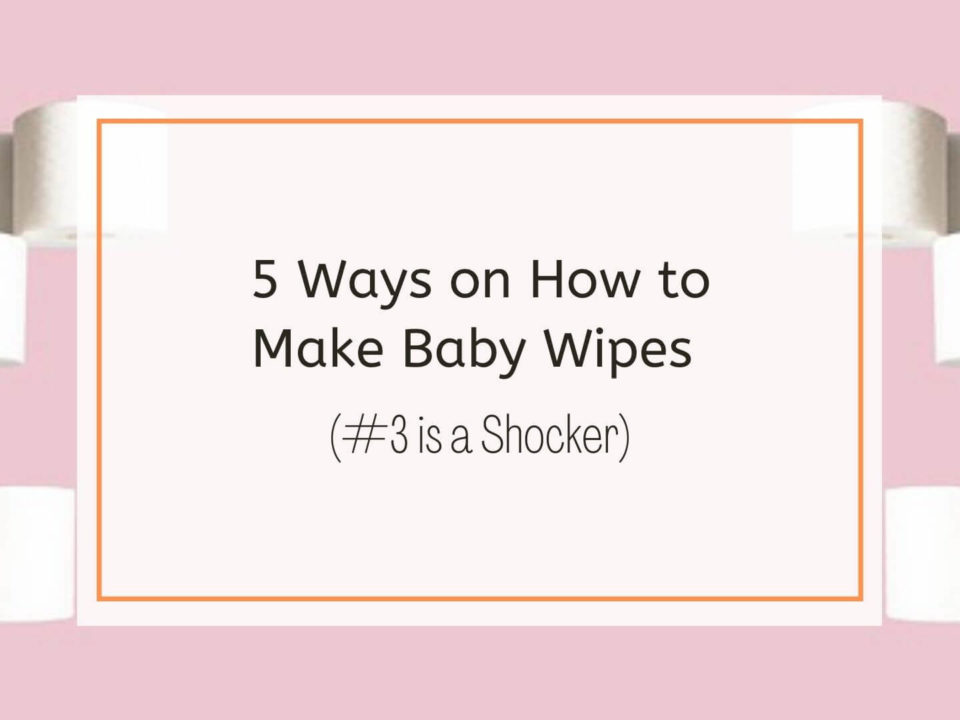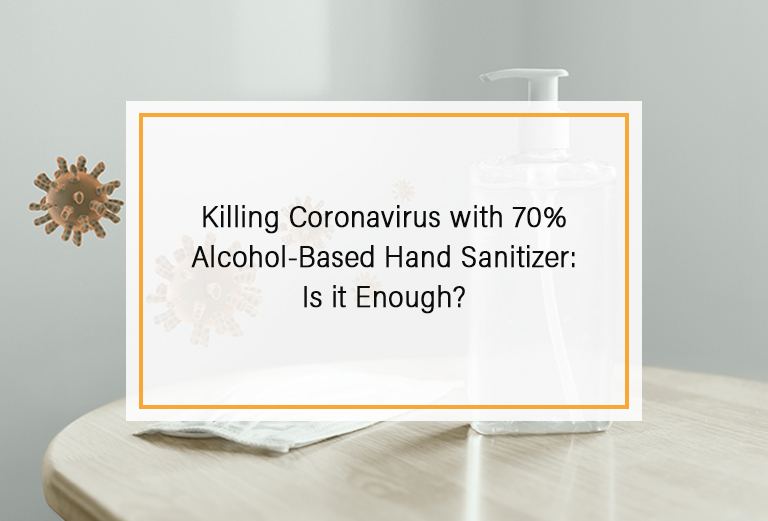
Here’s a rundown of what you need to know about hand sanitizers during the COVID-19 outbreak:
- Because of the global pandemic, a sudden surge in the hand sanitizer market has spiked creating an imbalance between its supply and demand.
- Grocery stores are ransacked from sanitizers, aside from masks and alcohol. Some people are opting to make their own sanitizers at home.
- Hand sanitizers are immediate solutions for cleansing the hand when there’s no soap and water available at hand.
- Yes, alcohol-based hand sanitizers with 60-95% ethanol, isopropyl or n-propanol kill the Coronavirus by destroying its protein layer. What things should you know before you make/buy hand sanitizers?
A quarter of the year 2020 has passed since the novel Coronavirus first spread in Wuhan. If you’re wondering if anyone has created a drug treatment, no, there aren’t – yet. There’s no solid data that can safely tell you how to cure the virus. What we can do right now is prevent it from spreading.
How the Coronavirus Spreads
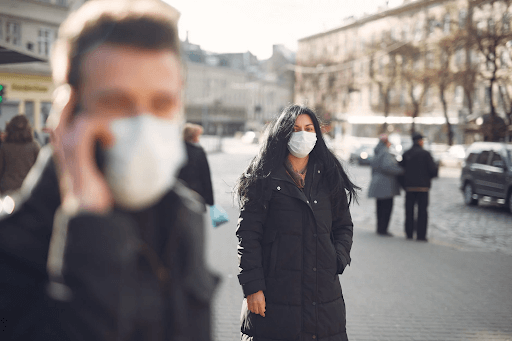
Image by Gustavo Fring from Pexel
Since there’s no vaccine or any medicine available, the best way is to avoid cross-transmission. Most popularly, the virus is transferred to another person when an infected person coughs or sneezes at him.
It can also be spread through feacal contaminants or by simply touching your face after you hold onto something with virus contamination.
How to Prevent it from Spreading?
According to the World Health Organization (WHO), there are 3 ways to prevent the spread of COVID-19. These are by washing your hands or using alcohol-based hand sanitizers and preventing yourself from touching your face.
So how does a simple habit of rigorously washing your hand with soap and water and applying hand sanitizer overcome the deadly parasites?
Why Soap & Water Kills the Coronavirus
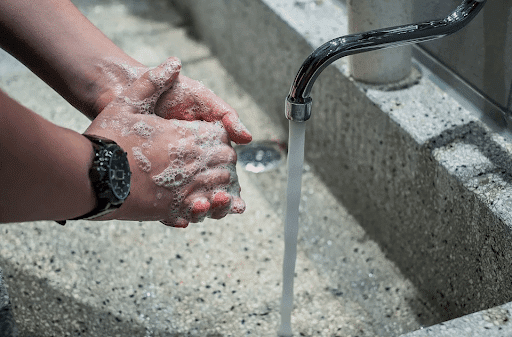
Image by Couleur from Pixabay
As experts say, the best method of killing the virus is by washing your hands with soap and water. What’s the logic behind this?
Coronavirus has a “ crown” with spiky proteins, enveloped in a layer of lipids. Lipids are Fats or 3 Fatty Acids – which means they produce oil.
To remove the oil, one has to use a Surfactant. Soaps and detergents are surfactants. These are molecules containing a fat-loving and a water-loving end.
In technical terms, the fat-loving portion called the lipophilic gathers the fats from the virus. Then the water-loving portion or the hydrophilic will “pull” the virus and kill it in water.
Removing the virus from your hand is similar to washing off grease from an oily pan. You need soap to remove oils and not just rely on water alone.
Similarly, intense scrubbing of the hands with soap and water until more bubbles are created break the activities of the virus from multiplying. That’s why it is advised to sing the “Happy Birthday” song while washing your hands, to completely eliminate the germs on your hands.
You may want to read UNICEF’s advice on how you can teach your child to wash their hands properly here.
Now that we are clear with the soap-water-killing-the-virus principle, let’s move on to alcohol-based hand sanitizers.
Why Alcohol-Based Hand-Sanitizers Kill Germs and Viruses
As quoted from CNN’s interview with Dr. William Schaffner, a professor of infectious disease at Vanderbilt University School of Medicine:
“Alcohol is pretty effective at killing germs, but it doesn’t wash away stuff,” he said. “So you know, if somebody’s just sneezed into their hand, and their hand is covered with mucus, they would have to use a lot more alcohol to inactivate that bacteria or virus.
While hand sanitizers are just a defense option when you’re not near the sink, they do work. Lab data from the Center for Disease Control and Prevention (CDC) shows how 60% ethanol and 70% isopropanol in hand sanitizers inactivate COVID-19 and germs.
For the hand sanitizer to work most effectively, use the proper amount and rub it all over your hands until it dries. Take note not to dry off your hands on your shirt or on any object.
How Does Alcohol Eliminate the Coronavirus?
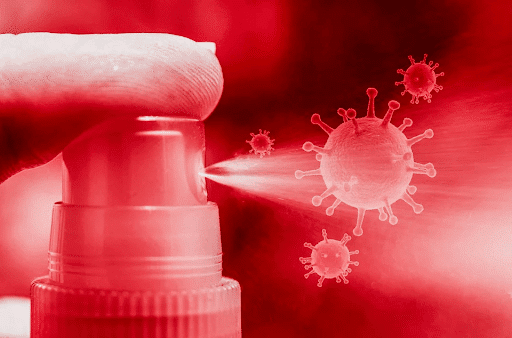
Image by Mohamed_Hassan from Pixabay
We’ve explained above how friction washing with soap and water guts out the virus by pulling away its lipid. Does alcohol do the same to the virus?
Apparently, Alcohols have another way of eliminating germs and viruses. This is technically called its antimicrobial action by protein denaturation, where the alcohol inactivates and unfolds proteins. While not all types of microbes and viruses can be killed by alcohol, Coronavirus can die in it. That is because alcohol kills the type of virus that has a protein envelope, in which Coronavirus have.
But be careful on buying hand sanitizers, anti-bacterial hand gels or sprays as not all of them are effective at killing microbes. You should pick the ones with 60% or greater alcohol concentration.
CDC recommends using alcohol-based sanitizers with more than 60% ethanol or 70% isopropanol for better hand hygiene. Ideally, use alcohol-based hand sanitizers with 60 to 95% alcohol.
Can a 100% Alcohol-Based Sanitizer Work More Effectively than Those Having Only 95%?
No, it doesn’t. Protein denaturation works best if there’s a small amount of water present in the solution. A 100% Alcohol concentration would also vaporize too quickly to kill viruses on your hands, especially when the air is dry or not humid.
Pure alcohol can also dry out your skin or cause irritation. That’s why hand sanitizers have emollients, which helps moisturize the skin.
When to Not Use Hand Sanitizers?
In extreme cases where your hands are extremely oily and dirty, the CDC notes that sanitizers might not work well.
That’s why try to get access with soap and water as much as you can.
Will Drinking Alcohol-Based Drinks Like Vodka or Beer Work?

Image by Jacqueline Macou from Pixabay
No. As WHO clears out some misconceptions, they said the virus that has already entered your body cannot be killed with alcohol. So when you drink alcohol-based drinks, it wouldn’t kill the virus in your body.
Hand Sanitizer Bulk Production
Recently, distilleries and breweries have made a life-saving movement by turning some of their production lines into hand sanitizer production. This is in response to the scarcity of hand hygiene products in many countries.
As China picks up its pace in the manufacturing sector, Chinese companies are also gaining up traction to respond to the need for bulk high-quality hand sanitizers.

